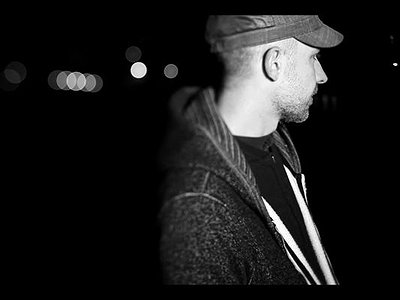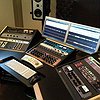What was your first mastering-related job - and what or who were your early passions and influences?
Back in the early/mid '90s when I worked at Instinct Records in New York I was the art director. I handled 100% of the graphic related jobs. However, I was also signed to the label at the time and because of my knowledge of music and studios the label had me do rudimentary mastering on a lot of their releases. Mostly it was to compile compilations from many sources and make sure the included tracks had balanced relative volumes. I would also deal with the flow and spacing and produce the master disc.
While I wasn’t doing very much audio processing, these steps in mastering are really the foundation, super important, and often overlooked. Doing this for years for a lot of releases really gave me a good background for what I would end up doing years later… now.
As for influences… I’ve never followed the careers of any other mastering engineers. My only influence has been the desire to make people’s music sound better. It really stemmed from the fact that a lot of the music in the genre I work in is produced in bedrooms with sub-optimal acoustic situations, recording equipment or digital/analogue convertors.
I took it upon myself to invest in high quality analogue equipment to help bring about better sound quality to these recordings, to really make sure people hear the details and the subtle, beautiful sounds that all of this music can present.
What do you personally consider to be the decisive moments in your artistic work and/or career in the field of mastering?
I’ll stick to mastering for now, as my own creative musical career so far has many such moments. I would say that 4 or 5 years ago, when I decided to really take mastering seriously and offer it as a service to others, I made the commitment to myself to jump in and do it and do it right.
I already had a solid knowledge of the recording studio and deep knowledge of the genres of music I worked in, so I made the decision to open an analogue mastering studio and try to help the final quality of sound for musicians and labels within my circle. Just about every one of my clients is after analogue mastering with outboard gear that is beautifully tuned for the job and has great sound quality. This, as well as my knowledge of experimental music, is what I offer to clients.
How would you personally define your role in the creative process? What is the scope and what are the limitations of what you are capable of doing? In how far do you feel increasing technical education even among amateur musicians has changed this role?
Traditionally, the role of a mastering engineer is a non-creative one. Technical-only, I would say. This can still be true today and many engineers strive for a transparency of sound. However, because I come from an arts background my mastering tends to take on a more creative roll. I always call myself a very non-transparent engineer, unafraid to inject a bit of my own sound. This is simply the natural way for me and I think most of my clients come to me for this reason.
I think it helps to have something unique to offer people instead of being too by-the-book. Of course, with mastering, you don't want to totally change someone's sound that they've worked very hard to achieve with their mix. There are subtle ways to create a vibe or bring out details that my clients and I feel improves the sound, even if it's different from the original mix.
I love it when a client listens to the masters for the first time and tells me they hear sounds they didn't even know existed in the recordings. Usually this is a good thing, I have a knack for bringing out little details and nuances.
I’m not so sure technical education has increased among amateur musicians. If anything, maybe it's decreased. Writing and mixing music is so "easy" now, with the abundance of plug-ins and automatic-everything out there. You really don't need to know much to make a finished recording these days. If you're not interested in learning about recording techniques or details about mixing, it probably doesn't matter.
I’ve never really looked into this notion, or researched it in any way, but I wouldn't be surprised if technical knowledge has decreased. It's not a good thing, I don't think. I’m not a proponent of taking the easy way out or not fully immersing yourself in all of the aspects of your craft, technical or otherwise.
In which way does the way music sounds change the way it is perceived? How do you see the relative importance of sound and composition?
I’d say this question is too broad to answer. Music is sound. Every way the music changes will change the way it’s perceived. Sound is only as important as you make it, as you let it change your world. For me, it's extremely important.
What, to you, are the main goals of recording, editing and mastering? Do you, for example, feel it important that a recording is a reflection of reality or is it by default artifice and therefore subject to its own rules?
Mastering, by many people's definition, is about being as transparent as possible. It's about making the recording translate to the end medium as cleanly as possible and to be so subtle as to almost hear no changes. While these are certainly important points that have to be considered when mastering, as I said above, I don't usually claim to be a transparent mastering engineer myself.
I think it comes from being a musician and also being highly involved in the types of music that I tend to master. I think I often have a sonic stamp to my mastering, which would probably be an idea criticized in many circles, but I think people come to me because of that sound.
However, at the end of the day, each song has to be mastered to achieve what is its own very specific goal. Sometimes that is transparency, or very subtle processing but sometimes it is a heavier hand with saturation and character driven by the equipment used. I love the creative side of mastering. I wouldn’t be as interested in it if I always aimed to sound sterile.




